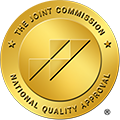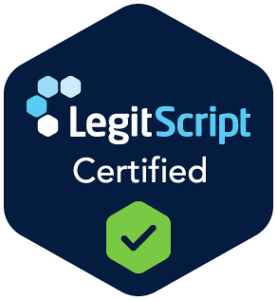At Memphis Detox, we offer evidence-based addiction treatment that incorporates Cognitive Behavioral Therapy (CBT) to support long-term recovery.
Overcoming addiction often requires more than just willpower—it demands a comprehensive approach that addresses both the psychological and behavioral aspects of substance use. Cognitive Behavioral Therapy (CBT) is a widely recognized, evidence-based treatment that plays a crucial role in addiction recovery. Clinical and experimental research, including findings from the National Institute on Drug Abuse, supports CBT as an effective treatment for alcohol and drug addiction. By helping individuals understand and change the thoughts and behaviors that fuel their addiction, CBT offers a practical and effective path toward lasting recovery.
What is
CBT for Addiction?
Cognitive Behavioral Therapy (CBT), also known as cognitive behavioral treatment, is a structured, goal-oriented form of psychotherapy that focuses on the relationship between thoughts, feelings, and behaviors. The core principle of CBT is that our thoughts influence our emotions and actions. By identifying and challenging unhelpful or distorted thinking patterns, individuals can develop healthier behaviors and coping strategies. CBT is also widely used to treat anxiety disorders, in addition to other mental health conditions.
CBT is based on the idea that psychological problems are partly based on faulty or unhelpful ways of thinking and learned patterns of unhelpful behavior. Through guided sessions, individuals learn to recognize these patterns and replace them with more constructive thoughts and actions. The main components of CBT include identifying triggers, developing coping strategies, and skills training such as mindfulness and goal setting.
How CBT Helps in Addiction Treatment
At Memphis Detox, CBT is a foundational part of our addiction treatment programs. Our licensed clinicians guide clients through structured CBT sessions tailored to their unique challenges, helping them develop healthier thought patterns and behaviors.
For example, someone struggling with alcohol use may believe that drinking is the only way to cope with stress. This belief often stems from negative thought patterns. CBT helps them identify these negative thoughts, challenge their validity, reframe their mindset, and develop healthier coping mechanisms.
CBT differs from other behavioral therapy for addiction approaches, such as 12-step programs or purely medical interventions, by focusing on the psychological triggers, thought patterns, and learned behaviors associated with substance use. While other therapies may emphasize peer support or medication, CBT provides practical tools for self-reflection and behavior change, making it a versatile and adaptable approach. CBT is supported by research as an effective treatment for both alcohol and drug abuse.
Benefits of CBT for Addiction Recovery
CBT is often used as a standalone treatment or in combination with other therapies, such as medication-assisted treatment (MAT) or support groups. Its adaptability makes it suitable for both individual and group settings, and it can be tailored to address specific types of addiction.
Advantages Over Other Therapies
One of the key advantages of CBT is its focus on both short-term and long-term recovery. In the short term, CBT equips individuals with practical skills to manage cravings, avoid triggers, and cope with stress. In the long term, it helps build resilience and prevent relapse by fostering lasting changes in thinking and behavior.
CBT is also highly customizable. Therapists can adapt the approach to meet the unique needs of each individual, taking into account their specific triggers, challenges, and goals. This flexibility makes CBT an effective option for people from diverse backgrounds and with varying types of addiction.
CBT Techniques Used in Addiction Treatment
For example, a person might notice that they are more likely to use drugs when feeling lonely or after an argument. By recognizing these patterns, they can develop strategies to avoid or cope with triggers, such as reaching out to a supportive friend or practicing relaxation techniques.
CBT teaches a variety of coping skills to help individuals manage cravings and prevent relapse. Skills training is a key component of CBT, helping individuals develop healthier coping mechanisms to deal with distress without resorting to substance use. These may include:
- Problem-solving: Learning to address challenges without resorting to substance use.
- Stress management: Practicing relaxation techniques, mindfulness, or deep breathing.
- Assertiveness training: Building confidence to refuse offers of drugs or alcohol.
- Developing healthy routines: Establishing new habits that support recovery.
Relapse prevention is a key focus of CBT. Individuals learn to anticipate potential setbacks and create action plans to handle them, reducing the likelihood of returning to substance use.
Cognitive restructuring involves identifying and challenging unhelpful beliefs that contribute to addiction. For instance, someone might believe, “I can’t have fun without drinking,” or “I’m a failure because I relapsed.” CBT helps individuals examine the evidence for these beliefs and replace them with more balanced, realistic thoughts.
Through guided questioning and reflection, individuals learn to view themselves and their recovery journey in a more positive light, which can boost motivation and self-esteem.

What to Expect in
CBT Sessions for Addiction
CBT sessions for addiction are typically structured and time-limited, often lasting 45 to 60 minutes. Sessions may be held weekly or biweekly, depending on individual needs and treatment plans. A typical session includes:
- Reviewing progress and challenges since the last session.
- Setting an agenda for the current session.
- Discussing specific thoughts, feelings, and behaviors related to addiction.
- Practicing new skills or techniques.
- Assigning homework or exercises to reinforce learning between sessions.
Role of the Therapist and Patient
CBT is a collaborative process. The therapist acts as a guide and coach, helping the patient set goals, develop skills, and track progress. The patient is an active participant, engaging in self-reflection, practicing new behaviors, and completing homework assignments.
Goal setting is an important part of CBT. Together, the therapist and patient identify specific, achievable objectives for recovery, such as reducing substance use, managing cravings, or improving relationships.
Finding CBT for Addiction Treatment
At Memphis Detox, our expert team includes licensed addiction counselors and therapists trained in CBT techniques. We provide personalized treatment plans that address both the psychological and behavioral components of substance use.
Integrating CBT with Other Treatments
CBT is often most effective when combined with other forms of addiction treatment. This may include:
- Medication-assisted treatment (MAT): For certain addictions, such as opioids or alcohol, medications can help reduce cravings and withdrawal symptoms.
- Support groups: Participation in groups like Alcoholics Anonymous (AA) or SMART Recovery can provide additional peer support.
- Family therapy: Involving family members can improve communication and support recovery.
A comprehensive treatment plan may include a combination of CBT, medication, and support services tailored to the individual’s needs.
Frequently Asked Questions (FAQs)
about CBT for Addiction
Yes, relapse prevention is a core component of CBT. Individuals learn to identify triggers, develop coping strategies, and create action plans to handle high-risk situations.
CBT is typically a short-term therapy, lasting anywhere from 12 to 20 sessions. However, the duration may vary depending on individual needs and progress.
CBT is effective for a wide range of addictions and is an important part of substance abuse treatment , including alcohol, drugs, gambling, and more. It can be adapted to address the unique challenges of each type of addiction.
Yes, many therapists offer CBT for addiction through telehealth or online platforms. Online CBT can be just as effective as in-person sessions for many individuals.
During your first session, the therapist will ask about your history, current challenges, and goals for treatment. Together, you’ll develop a treatment plan and begin exploring the thoughts and behaviors related to your addiction.
You can search for licensed therapists through professional directories, your healthcare provider, or local addiction treatment centers. Look for therapists with experience in CBT and addiction counseling.

Recovery from Alcohol and Drug Abuse is Possible
If you or someone you know is struggling with addiction, Memphis Detox is here to help. Our comprehensive programs, including Cognitive Behavioral Therapy, offer practical tools and compassionate care to support your recovery journey. Reach out today to learn more about our personalized treatment options and take the first step toward a healthier, substance-free life.
- National Institute on Drug Abuse (NIDA). “Principles of Drug Addiction Treatment: A Research-Based Guide (Third Edition).” https://nida.nih.gov/publications/principles-drug-addiction-treatment-research-based-guide-third-edition/evidence-based-approaches-to-drug-addiction-treatment/behavioral-therapies
- Substance Abuse and Mental Health Services Administration (SAMHSA). “Cognitive Behavioral Therapy (CBT).” https://www.samhsa.gov/resource/ebp/cognitive-behavioral-therapy-cbt
- American Psychological Association. “Cognitive Behavioral Therapy.” https://www.apa.org/ptsd-guideline/patients-and-families/cognitive-behavioral
- National Institutes of Health (NIH). “Cognitive Behavioral Therapy for Substance Use Disorders.” https://www.ncbi.nlm.nih.gov/pmc/articles/PMC5795806/
- Center for Substance Abuse Treatment. “Substance Abuse Treatment: Group Therapy.” https://www.ncbi.nlm.nih.gov/books/NBK64214/
- Mayo Clinic. “Cognitive behavioral therapy.” https://www.mayoclinic.org/tests-procedures/cognitive-behavioral-therapy/about/pac-20384610
- National Institute on Alcohol Abuse and Alcoholism (NIAAA). “Behavioral Treatments.” https://www.niaaa.nih.gov/alcohols-effects-health/treatment-alcohol-use-disorder/behavioral-treatments
- Harvard Health Publishing. “Cognitive behavioral therapy for substance use disorders.” https://www.health.harvard.edu/mind-and-mood/cognitive-behavioral-therapy-for-substance-use-disorders
For more information or to find a CBT therapist near you, visit the [SAMHSA Treatment Locator](https://findtreatment.samhsa.gov/) or consult your healthcare provider.



